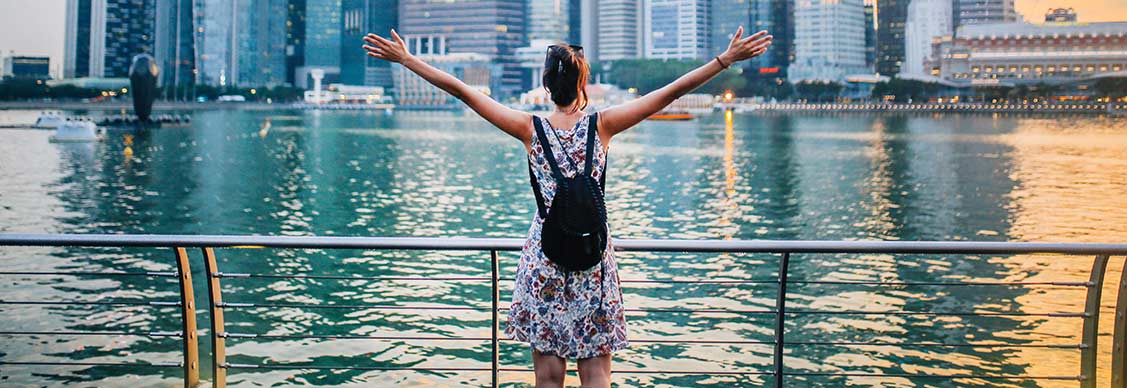Sustainability the new barometer for health, success and longevity
The recently concluded COP26 was the most anticipated and important one yet.
There’s no time like the present
All eyes were on global leaders who needed to agree on the acceleration of the pace and scale of decarbonisation and climate-positive action.
Without change, up to 64 per cent of Southeast Asia would likely be affected by drought, and the ASEAN region could see more than 35 per cent of its regional GDP slashed by 2050. Compounding matters, negative climate change in that same period will lead to an increase in air pollution, heatstroke and other heat-related diseases across the population.
This is why, when it was first introduced, the Singapore Green Plan 2030 had set ambitious targets for the nation’s sustainability movement, to change the way people would live work and play. Since COP26, the Singapore government has further committed to revisiting and strengthening its 2030 climate targets to align with the Paris Agreement temperature goal by the end of next year.
These goals need to be met and cannot be achieved without the collective ownership and collaboration between government and the civic and corporate populace.
Private sector picking up the mantle
It is therefore timely that a Singapore-focused JLL report on real estate and sustainability found that 72 per cent of businesses here have adopted or are planning to adopt net zero carbon goals by 2025.
In looking to achieve those targets, it is mission critical that businesses here take a closer look at their real estate commitments. After all, the built environment accounts for 40 per cent of carbon emissions globally, with 30 per cent arising from operating these buildings.
Encouragingly, the report found that close to 80 per cent of businesses polled in Singapore have identified real estate as a key driver in achieving corporate decarbonisation goals. And they are taking this seriously, with 7 in 10 companies showing a willingness to pay rental premium to lease green certified buildings.
Thankfully, the real estate sector here is well prepared to cater to this growing demand, with close to 80 per cent of the 69.7 million sq ft of office space tracked by JLL here having already received green certification as of 3Q21.
Looking for more insights? Never miss an update.
The latest news, insights and opportunities from global commercial real estate markets straight to your inbox.
More than just the environment is at stake
Climate change, however, is not the sole factor pushing major corporations to come out with sustainability pledges. Driving this is an increase in investor pressure, with there being a heightened and growing desire for companies to be seen as ethical and expectation that employees in the future will demand green and sustainable spaces.
For the workforce powering businesses here, these changes cannot come fast enough. When polled, 76 per cent of the local workforce are demanding climate positive action from their employers, with 73 per cent believing that green initiatives are a must for businesses.
All that clearly demonstrates that sustainability is the new lever for talent attraction and retention. In fact, 63 per cent of the workforce have indicated a desire to work for a sustainability leader, with 69 per cent making clear their preference for an employer that actively involves employees in its sustainability efforts.
For leading property developer Lendlease, its communities, employees, and the rigour of competition have been key motivators in helping the organisation set ambitious targets. “Working through our construction, development, and long-term asset development business, we have set a net zero target by 2025, and an absolute zero target by 2040. There’s a real level of confidence here. Importantly, to compete with leading businesses, we need to have a very clear ambition and to deliver on it”, said David Hutton, Group Head of Development, Lendlease.
A collective purpose requires collaboration
However important change is, it cannot be the sole responsibility of businesses, who will need an ecosystem of partners to help spur it forward in the race to net zero carbon - a sentiment shared by the vast majority of businesses here.
On that front, initiatives such as a world-first green and sustainability-linked loan grant scheme by the Monetary Authority of Singapore will be warmly received by businesses here, who can obtain green and sustainable financing to defray costs in validating their green and sustainability credentials.
On the outlook of Singapore’s sustainability prospects for the future, Chris Archibold, Country Head, JLL Singapore said “with supportive government incentives, an encouraging workforce and a good stock of green office spaces here, the private sector in Singapore is well-equipped with all it needs to achieve its corporate sustainability ambitions and partner with the government in helping Singapore reach its 2030 goals”.
